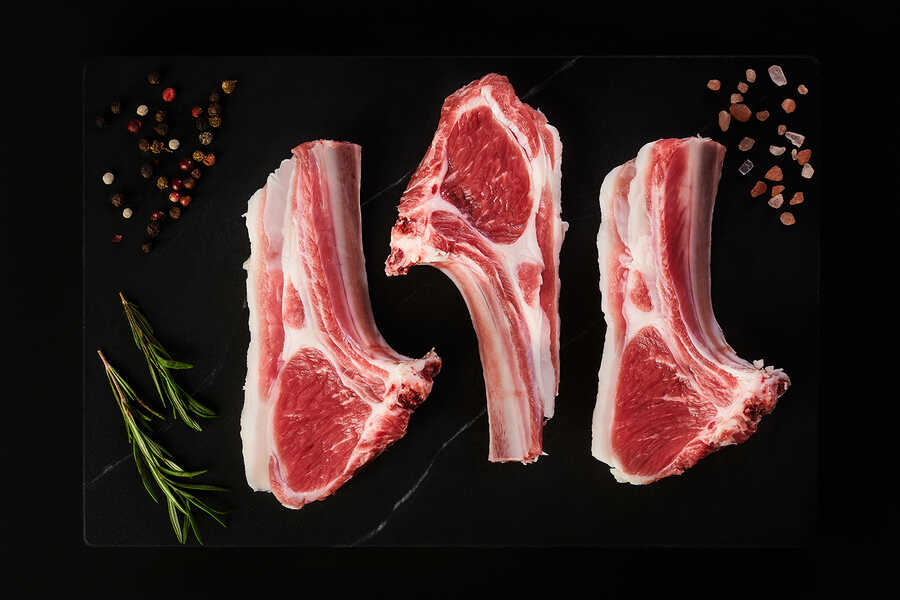The demand for high-quality, fresh, and sustainably produced lamb is on the rise in the Bay Area. Consumers are increasingly concerned about where their food comes from, how it is produced, and its impact on the environment. Lamb Products Bay Area are responding to these concerns by implementing practices that ensure both freshness and sustainability.
1. Local Sourcing for Freshness
One of the key ways Lamb Products Bay Area ensure freshness is by sourcing their lamb locally. Local sourcing means that the lamb is raised and processed close to where it is sold, reducing the time between farm and table. This practice not only ensures that the lamb is as fresh as possible but also supports the local economy.
By working with local farms, suppliers can offer lamb that is often delivered within a day or two of processing. This short supply chain minimizes the time the meat spends in transit, which helps maintain its quality and flavor. Additionally, local sourcing allows suppliers to have better control over the production process, ensuring that the lamb is handled with care at every stage.
2. Sustainable Farming Practices
Sustainability is a major focus for Bay Area lamb suppliers, and this starts with how the lamb is raised. Many local farms use sustainable farming practices that prioritize the health of the land, animals, and community.
Sustainable farming practices include rotational grazing, where lambs are moved between different pastures to prevent overgrazing and promote soil health. This method not only ensures that the lambs have access to fresh, nutrient-rich grass but also helps maintain the natural ecosystem.
In addition, many farms avoid using synthetic fertilizers, pesticides, and antibiotics, opting instead for organic methods that are better for the environment and the animals. These practices contribute to the sustainability of the farm and ensure that the lamb produced is of the highest quality.
3. Ethical Treatment of Animals
The ethical treatment of animals is another important aspect of both freshness and sustainability. Bay Area lamb suppliers often work with farms that follow strict animal welfare guidelines to ensure that the lambs are raised in a humane and stress-free environment.
Lambs that are raised ethically are typically given plenty of space to roam, access to fresh water, and a natural diet. This not only contributes to the overall well-being of the animals but also results in better-quality meat. Stress-free lambs produce meat that is more tender and flavorful, which is why ethical treatment is closely linked to freshness and taste.
Moreover, ethical farming practices are a key component of sustainability, as they promote the long-term health and productivity of the farm. By supporting suppliers that prioritize animal welfare, consumers can enjoy lamb that is not only delicious but also ethically produced.
4. Minimizing Environmental Impact
Bay Area lamb suppliers are also focused on minimizing their environmental impact, which is a critical aspect of sustainability. This includes reducing carbon emissions, conserving water, and managing waste effectively.
For instance, many farms use renewable energy sources, such as solar or wind power, to operate their facilities. They may also implement water-saving techniques, such as drip irrigation, to minimize water usage while maintaining the quality of their pastures.
In terms of waste management, sustainable farms often compost manure and other organic materials to create natural fertilizers, which enrich the soil without the need for chemical inputs. This closed-loop system reduces waste and enhances the sustainability of the farm.
5. Traceability and Transparency
Traceability and transparency are essential for ensuring the freshness and sustainability of lamb. Bay Area suppliers are increasingly providing consumers with information about where their lamb comes from and how it was raised.
This transparency allows consumers to make informed choices about the meat they purchase. For example, some suppliers provide detailed information about the farm where the lamb was raised, the farming practices used, and the timeline from farm to table. This level of detail helps build trust between suppliers and consumers and ensures that the lamb meets the desired standards of quality and sustainability.
6. Direct-to-Consumer Sales
Another way Lamb Products Bay Area ensure freshness and sustainability is through direct-to-consumer sales. By selling lamb directly to consumers, either at farmers’ markets or through online platforms, suppliers can reduce the need for intermediaries, such as distributors and retailers.
This direct connection allows suppliers to deliver lamb that is fresher and more sustainably produced, as it spends less time in storage and transportation. It also enables consumers to establish a relationship with the farmers and suppliers, gaining a deeper understanding of the food they eat and the practices behind it.
Conclusion
Lamb Products Bay Area suppliers are dedicated to ensuring the freshness and sustainability of their products through practices such as local sourcing, sustainable farming, ethical treatment of animals, and minimizing environmental impact. By prioritizing transparency, traceability, and direct-to-consumer sales, these suppliers provide high-quality lamb that meets the growing demand for fresh, ethical, and environmentally responsible meat. By choosing lamb from these suppliers, consumers can enjoy delicious, fresh meat while supporting sustainable practices that benefit the community and the planet. Thank visiting repurtech.com
